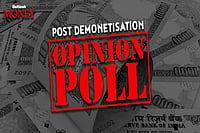Recognising that SMS, email and phone call are fraudsters’ favourite platforms to ensnare gullible users, the Reserve Bank of India (RBI) has decided to beat the fraudsters at their own game by using these tools to spread awareness among customers. The banking regulator plans to send emails and SMSes to the general public cautioning them against falling prey to “unsolicited and fictitious offers received through emails/SMSes/phone calls.”
Now, how can customers ascertain whether these messages are genuine or not? To start with, they should look for messages from the ‘RBISAY’ sender ID. This is the first time it will be using the same media (SMS and emails) as those used by the fraudsters. Make it a habit to ignore or report any messages that seek bank or card details and PIN. Do not believe any SMSes that claim that you have won a lottery. “Members of the public can give a missed call to 8691960000 to get more information through Interactive Voice Response System (IVRS) on fake calls/emails as well as investing wisely and cautiously in chit funds,” an official release said. Despite constant warnings from RBI and other financial regulators, such frauds are rampant, swindling unsuspecting customers across the country. Many masquerade as official emails to gain customers’ trust and elicit bank details, password or even an ‘advance fee’ to transfer lottery winnings. The central bank’s latest move aims to counter tricksters by using similar platforms. In addition to anti-fraud warnings, the messages will also educate individuals about various banking regulations and facilities available to them.
While RBI’s proactive communication will certainly help, it would do well not to leave out Whatsapp from its ambit, given that it is fast becoming their new platform of choice to trap gullible users.































